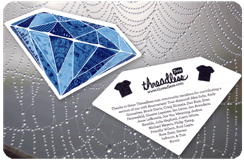 As recently as the early 2000s, the stereotypical image of the corporate careerist typically included a flashy convertible jetting down the highway with a set of expensive golf clubs stashed in the trunk. Nowadays, though, these once weighty symbols of wealth and status have plummeted in popularity. Instead of a cherry red Corvette, modern executives and ladder climbers would prefer to cruise to their next meeting in a big SUV. And thanks to smartphones, the golf links aren’t the same Continue reading
As recently as the early 2000s, the stereotypical image of the corporate careerist typically included a flashy convertible jetting down the highway with a set of expensive golf clubs stashed in the trunk. Nowadays, though, these once weighty symbols of wealth and status have plummeted in popularity. Instead of a cherry red Corvette, modern executives and ladder climbers would prefer to cruise to their next meeting in a big SUV. And thanks to smartphones, the golf links aren’t the same Continue reading







